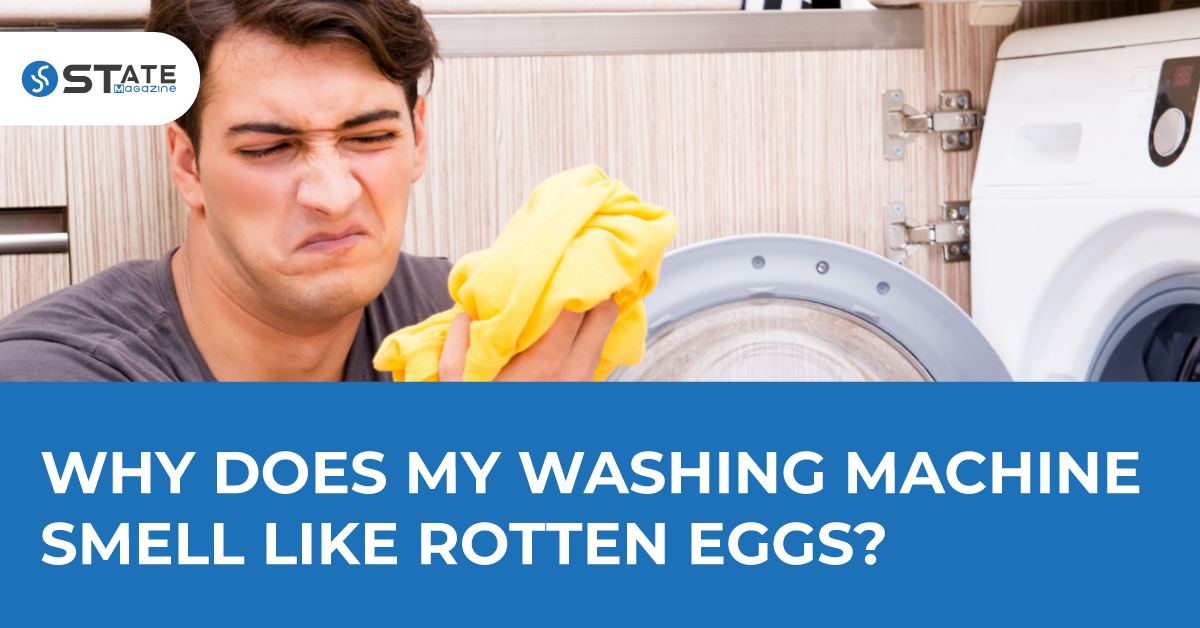Gain in-depth insights into How To Remove Rotten Egg Smell From Washing Machine, may the information we provide be beneficial for you.

The Unbearable Odor: Unmasking the Source and Solutions for a Rotten Egg Smell in Your Washing Machine
Imagine the shock and disgust when you open your washing machine, only to be hit by an overwhelming stench of rotten eggs. This unpleasant odor can be a common problem, caused by a variety of factors. Let’s dive into the world of washing machines and explore the causes and solutions to this pungent problem.
The culprit behind this offensive odor is often bacteria and mold. These microorganisms thrive in the moist and warm environment within the washing machine, especially in areas that remain damp for extended periods. The accumulation of organic matter, such as dirt, detergent residue, and fabric fibers, provides an ideal breeding ground for these odor-causing villains.
Unmasking the Causes: A Deep Dive into Bacteria and Mold Build-up
Bacteria and mold flourish in stagnant water and thrive on the organic matter present in the washing machine’s environment. These microorganisms produce hydrogen sulfide gas, which is responsible for that distinct rotten egg smell. The presence of warm, humid conditions, such as those inside a washing machine, further exacerbates the growth and activity of these odor-causing agents.
Besides the accumulation of organic matter, other factors can contribute to the formation of bacteria and mold in your washing machine. These include using low water temperatures during washes, which may not effectively remove dirt and detergent residue, and infrequent cleaning of the machine, allowing bacteria and mold to accumulate.
A Comprehensive Guide: Master the Art of Bacteria and Mold Removal
Combating the rotten egg smell in your washing machine requires a multi-pronged approach. Regular cleaning and maintenance are crucial to keep bacteria and mold at bay and ensure your machine stays fresh and odor-free.
Run a hot water cycle with a cup of white vinegar or a commercial washing machine cleaner. The vinegar’s acidity effectively kills bacteria and mold, while the commercial cleaners are specifically designed to eliminate odor-causing microorganisms. Allow the mixture to sit for an hour before running a rinse cycle to remove any residue.
Bleach can also be used to eliminate bacteria and mold, but it’s important to check your machine’s compatibility with bleach before using it. Chlorine bleach is not suitable for all washing machines, and excessive use can damage the machine’s components. If you opt for bleach, run a hot water cycle with 1 cup of bleach, and remember to thoroughly rinse the machine afterward.
Leaving the washing machine door and detergent drawer open after each use allows for proper ventilation and prevents moisture buildup, which can promote the growth of bacteria and mold. Regular cleaning of the rubber gasket around the washing machine door is also essential, as it can accumulate dirt and residue, providing a breeding ground for odor-causing microorganisms.
Expert Insights: Tips and Advice for Odor Elimination
Incorporating these tips into your washing machine maintenance routine will effectively eliminate the rotten egg smell and keep your machine fresh and odor-free:
- Use hot water for washes: Hot water helps kill bacteria and mold, reducing the likelihood of odor formation.
- Add a cup of white vinegar to the rinse cycle: Vinegar’s acidity neutralizes odors and inhibits the growth of bacteria and mold.
- Regularly clean the detergent drawer and rubber gasket: These areas can accumulate dirt and residue, providing a breeding ground for odor-causing microorganisms.
- Leave the washing machine door and detergent drawer open after use: Proper ventilation prevents moisture buildup and inhibits mold growth.
- Consider using a washing machine cleaner: These cleaners are specifically designed to eliminate odor-causing microorganisms and keep your machine running efficiently.
- Q: What causes the rotten egg smell in my washing machine?
A: The rotten egg smell in your washing machine is primarily caused by the accumulation of bacteria and mold, which produce hydrogen sulfide gas during their metabolic processes.
- Q: How do I remove the rotten egg smell from my washing machine?
A: To eliminate the rotten egg smell from your washing machine, run a hot water cycle with vinegar or a commercial washing machine cleaner. Regularly clean the detergent drawer, rubber gasket, and leave the washing machine door and detergent drawer open after use to promote ventilation.
- Q: Can I use bleach to clean my washing machine?
A: While bleach can effectively eliminate bacteria and mold, it’s important to check your washing machine’s compatibility with bleach before using it. Excessive use of bleach can damage the machine’s components.
Frequently Asked Questions: Your Queries Answered
Conclusion: Banishing the Rotten Egg Odor for a Fresh-Smelling Laundry Room
By understanding the causes and implementing the solutions discussed in this article, you can effectively banish the rotten egg smell from your washing machine and maintain a fresh and odor-free laundry room. Remember to prioritize regular cleaning and maintenance, and implement the recommended tips and expert advice to keep your washing machine running efficiently and smelling its best.
Do you have any further questions or insights about eliminating the rotten egg smell from your washing machine? Share your experiences and knowledge in the comments below!

Image: civiljungle.com
An article about How To Remove Rotten Egg Smell From Washing Machine has been read by you. Thank you for visiting our website, and we hope this article is beneficial.